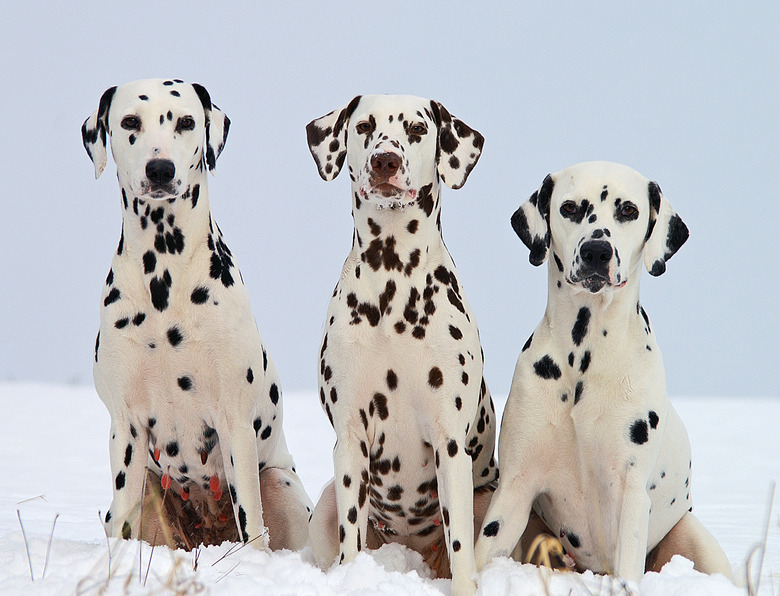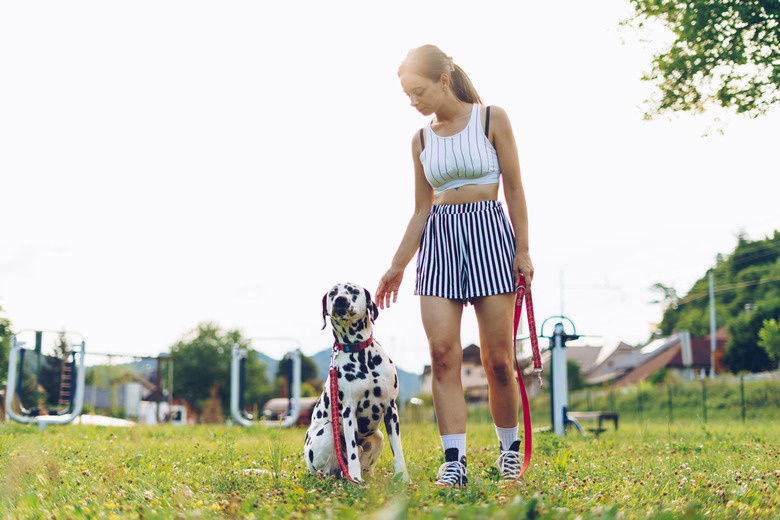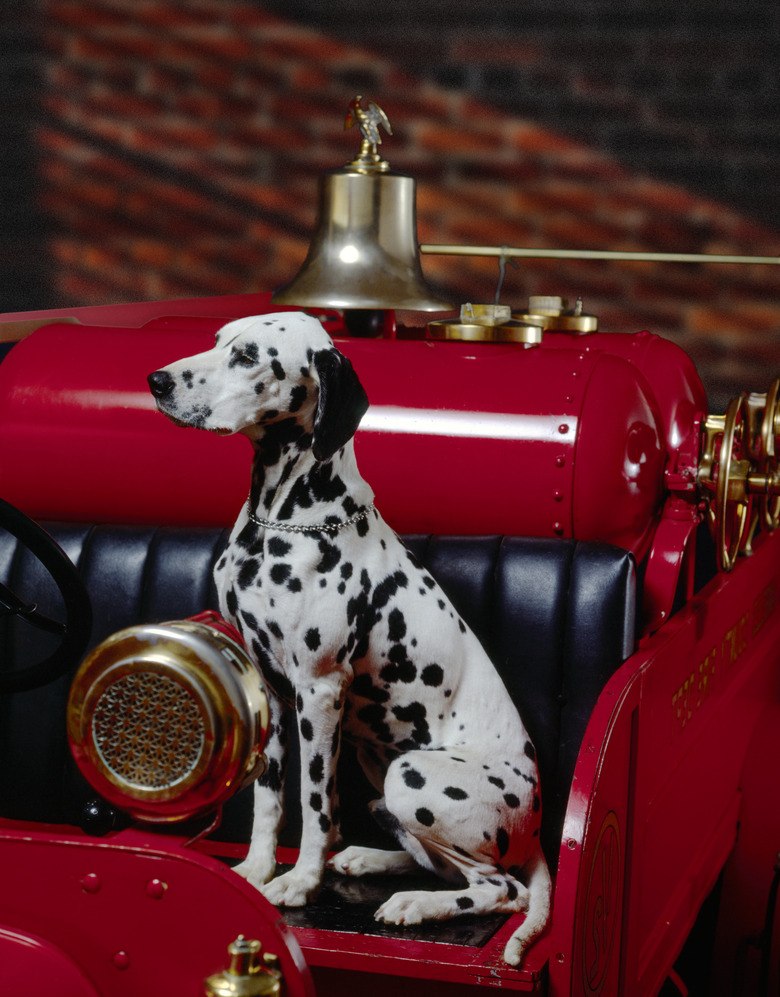5 Things To Know About Dalmatians
Dalmatians are muscular dogs born with short white hair and cute black or brown spots appearing by the time puppies are 10 days old. There's some uncertainty as to where Dalmatians first came to be, but based on the first illustrations of Dalmatians in the 1600's, they are believed to have originated in Croatia.
1. Are Dalmatians aggressive dogs?
1. Are Dalmatians aggressive dogs?
No. Dalmatians are not aggressive dogs. A dog's breed is not a reliable indicator of aggression, so it's not really possible to assume any breed is more aggressive than any other. It's always a good idea to keep in mind what your dog's breed was bred for, as that can play a role in a dog's tendencies and preferences. For example, we shouldn't be surprised when terriers love to dig, as they were bred to dig small animals out of burrows!
In general, Dalmatians are considered intelligent and highly energetic. In fact, their energy level may be too much for households with small children. Most Dalmatians would be happiest in a home where they can be regularly taken outside and have an active lifestyle. When your Dalmatian is resting, they are likely to want to be right by your side.
2. What are Dalmatian health issues?
2. What are Dalmatian health issues?
Sadly, Dalmatians are know for having several health issues. Approximately 18% of Dalmatians are deaf, with female Dalmatians more likely to be deaf than males. Some Dalmatians also have difficulty breaking down urates, which can sometimes lead to the formation of stones that make it difficult to urinate. Occasionally, Dalmatian puppies are born with laryngeal paralysis, a nervous system disorder which sometimes leads to death.
Eye issues can also plague Dalmatians. Some have poorly developed sphincter muscles which encircle the iris and make it difficult for their eyes to contract properly in bright sunlight. This can cause pain when exposed to an abundance of light. Dalmatians can also have glaucoma–a build up of pressure within the eyes, or pannus–an inflammation of the cornea.
3. Are Dalmatians hypoallergenic?
3. Are Dalmatians hypoallergenic?
No. There are no dog breeds that are 100% hypoallergenic. There's a common misconception that it's the hair on dogs that causes allergies, but it's actually the dander — small pieces of skin — that become stuck to dog hair that causes some people to sneeze. Brushing your dog regularly and making sure their skin doesn't become dry from frequent bathing can help reduce dander. If being around dogs makes you sneeze, you might want to consult your doctor to see if an allergy medication is a good option for you.
4. Are Dalmatians clumsy?
4. Are Dalmatians clumsy?
The adjective "clumsy" is a subjective term. To some, a Dalmatian's temperament might seem a bit goofy and uncontrolled, but it's likely just the result of having lots of spunk and strength. Most Dalmatian's are very energetic and playful, so it's perfectly normal for them to knock things over or bounce into people from time to time.
5. Why are Dalmatians fire dogs?
5. Why are Dalmatians fire dogs?
Dalmatians began working in firehouses in the mid 1700's because they were known for being alert and had a knack for calming the horses who pulled the firehouse equipment on carriages. They can also run fast, and did a great job of clearing the way for the horses, too. Although fire equipment is delivered via firetrucks these days, the rich history of Dalmatians being fire dogs lives on.
Here are some additional questions people often ask about Dalmatians:
Is a Dalmatian a good family dog?
Most Dalmatians are friendly and playful making them a great dog to have around a family. They generally have high energy, so if you don't mind playfulness, they should fit right in.
Do Dalmatians bark a lot?
Although Dalmatians occasionally bark, most don't bark very much. When it comes to noise, they're considered to be fairly quiet and docile.
How do you adopt a Dalmatian?
According to the ASPCA, over 3 million homeless dogs wind up in shelters in the United States each year, and several hundred thousand are killed because sadly, there aren't enough homes for them. If you're considering bringing a Dalmatian into your family, adopting one–instead of buying one–is a great option to consider. You can visit your local animal shelter to see if any Dalmatians are in need of a loving home, or seek out a Dalmatian rescue organization; there are many listed online.




